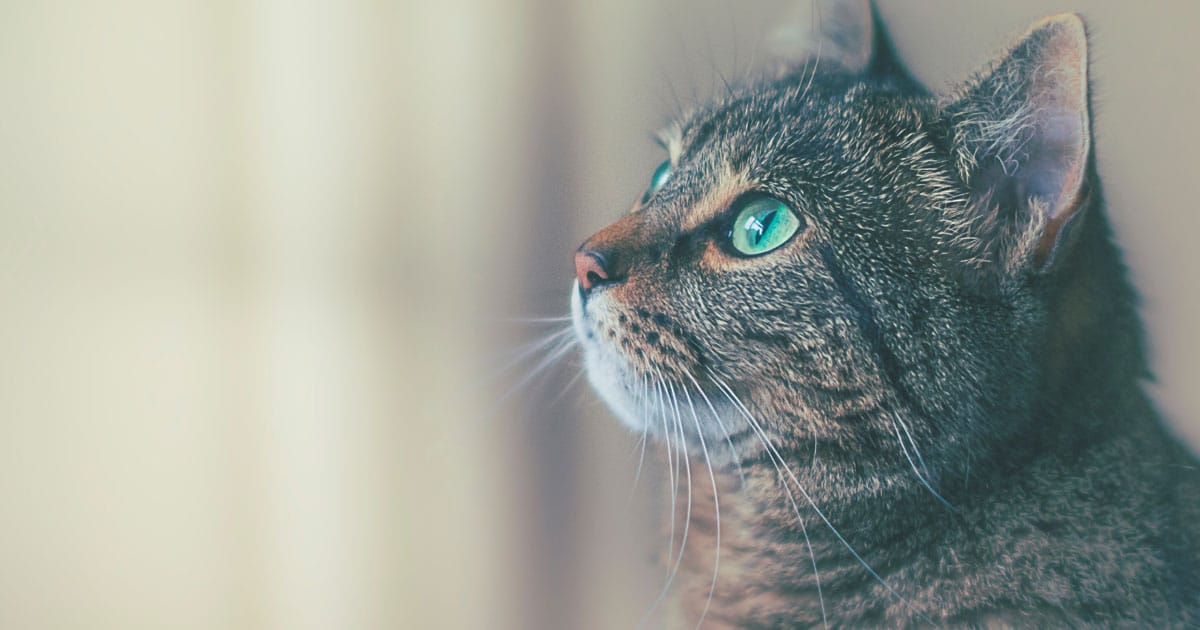Felines are wonderful creatures with warm and loving hearts. It comes as no surprise that they are emotionally equipped to feel loneliness, anger, sadness, and frustration. Even though it has been seen as taboo in the past, many owners and vets around the world are becoming more aware of cat anxiety and depression.
When they are faced with big changes in their lives, cats are prone to show signs of emotional distress. Anxiety and stress are some of the most common mental illnesses that felines can suffer from, just like humans. Learn more about cat anxiety in this article.
Whenever this happens, it can be quite traumatic for both the cat and the owner. It’s therefore important to understand the signs and symptoms of separation anxiety, depression, and stress. This will only give owners the tools to help their pets cope and achieve a balanced mental state.

What is the Cause of Cat Anxiety?
It is a popular belief that cats are independent creatures who like to do their own thing. This isn’t true in all cases though. Some cats are actually very outgoing and needy. Being surrounded by other pets and constant movement is what they need to remain in healthy headspace.
Here are some common causes of separation anxiety in your feline:
Breed Specific – Some breeds like Siamese and Burmese are codependent on their human owners. Other breeds are also much more reliant on human contact and need to have a human around in order for them to feel safe.
Kittens – As a general rule, kittens should be with their mother for at least 6 weeks before being weaned. Re-homing a kitten too early can cause a lack of independence and confidence. In cases where kittens are abandoned before being weaned, owners should be extra loving and sensitive towards their new pets.
Clingy Owners – Humans can be enablers when it comes to cat separation anxiety. This is because owners are too clingy. Spending most of their time with their furry feline friend, being around them all the time, and smothering them with attention. Once the owner then leaves, it creates an anxious feeling within the pet.
Boredom – Cats can feel bored, frustrated, stressed, and anxious when they don’t get enough playtime or don’t have enough space for activities.
When your pet’s anxiety is heightened, you can consider introducing calming CBD oil products, to help them cope, found here: https://www.holistapet.com/.
Other causes can be:
- Moving into a new home or city
- The loss of another pet in the home
- Medical conditions that cause pain
- Being neglected or when they have a history of abuse
Signs of Separation Anxiety
Even though the signs are usually very subtle, knowing your pet, you’ll be able to identify when they aren’t acting normal. Here is a list of the most common signs that they are suffering from separation anxiety:
- Sudden outbursts of anger when they aren’t prone to showing frustration
- Showing anger and frustration against other pets in the house
- Overgrooming their coats until clumps of hair fall out
- Constant meowing, hissing and yelling
- Following you around wherever you go and seems stressed when you are out of sight or behind a closed door
- Change in eating habits; either overeating or not eating at all
- Not using the litter box anymore and urinating on furniture or floor
- Crouching and hissing for no particular reason
- Hiding in corners, under sofas, or under the bed
- Shaking and trembling while hiding
- Acts scared whenever new people or pets come into the home by either running away or attacking
You should never ignore any of the above signs when they are out of the norm. As long as you are aware of any drastic changes in your cat’s attitude, behavior, and even the sounds they make, then you’ll know when they are in distress.
Remain vigilant and continue to give your cat attention (but not too much) as well as a safe space where they can rest and play. Always ensure that you are creating a loving and calm environment for them to feel less anxious in.
